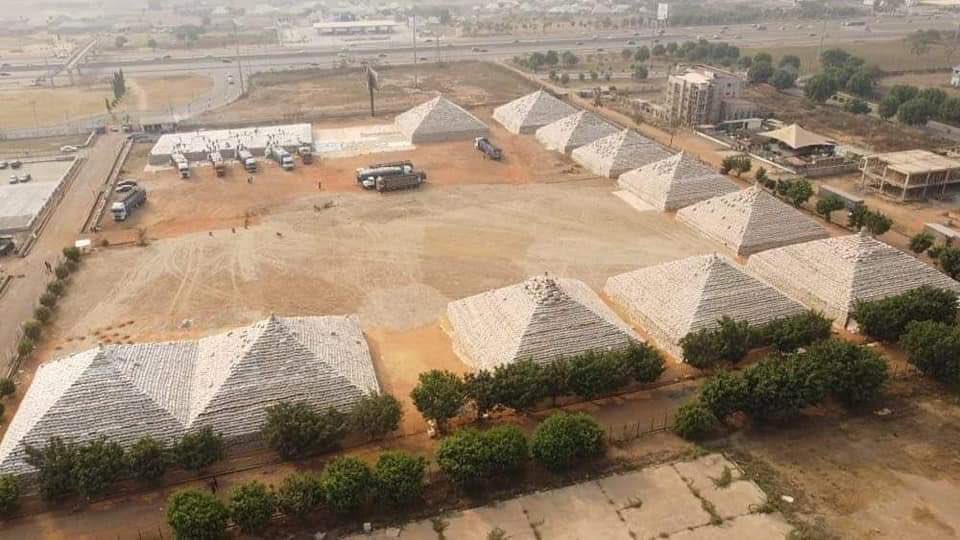The Rice Farmers Association of Nigeria (RIFAN) has predicted that rice prices in the country would drastically fall, as the federal government unveiled one million bags of rice paddy stacked as pyramids in Abuja, the capital city of the country.
Speaking about the development, Shehu Muazu, the Chairman of Pyramid Sub Committee, RIFAN, revealed that soon after President Muhammadu Buhari launched the rice pyramids, the pyramid, which is a collaborative effort between the Central Bank of Nigeria (CBN) and RIFAN, would be allocated to processors for producing edible rice that would then be sold at discounted prices.
Muazu maintained that the pyramids would be an evident that the local production of food is possible.
His words: “RIFAN in collaboration with the Rice Millers Association of Nigeria will process the rice and sell at a discounted price. This will lead to drastic reduction in price once it starts rolling into the market.
“Our collaboration with the millers association rests on the agreement that they will sell at a discounted price to Nigerians.
“Although, we cannot talk of price in isolation as far as prices all over the world are concerned because all over the world prices of food have gone up.
“But the good news is that rice will remain the cheapest commodity as far as food is concerned due to the success recorded through the scheme.’’
Citing how the Anchor Borrowers Programme (ABP) has helped farmers in ensuring that Nigeria’s food security is guaranteed and sustained, the RIFAN chief stated: “We have over one million bags of paddy rice which were collected from the beneficiaries of the ABP under the business strategy partnership. Benefiting farmers who received the loan, which came in the form of farm inputs and cash, repay with rice paddy of same value.
“The significance of this rice pyramid is to showcase the achievement of government as far as agriculture is concerned and to call on Nigerian corporations to queue into investments in agriculture. If the poor Nigerian farmers can do this then the rich people can do more than this.’’
What you should know
Unarguably, rice is the most consumed staple in Nigeria, such that no less 7 million tonnes of it is consumed annually across the country. Out of this figure, over two million tonnes of rice get imported annually, a reality President Muhammadu Buhari has committed his administration to addressing.
In order to encourage local production of rice and other food staples for reduction of their prices, the Buhari government floated ABP and encouraged farmers to take advantage of it.
As part of its economic input, the CBN said the ABP, which was inaugurated in 2015, had increased the average yield of rice per hectare from 1.8 metric tonnes to five metric tonnes, a development that indicates that the importation and smuggling of the commodity was discouraged.













